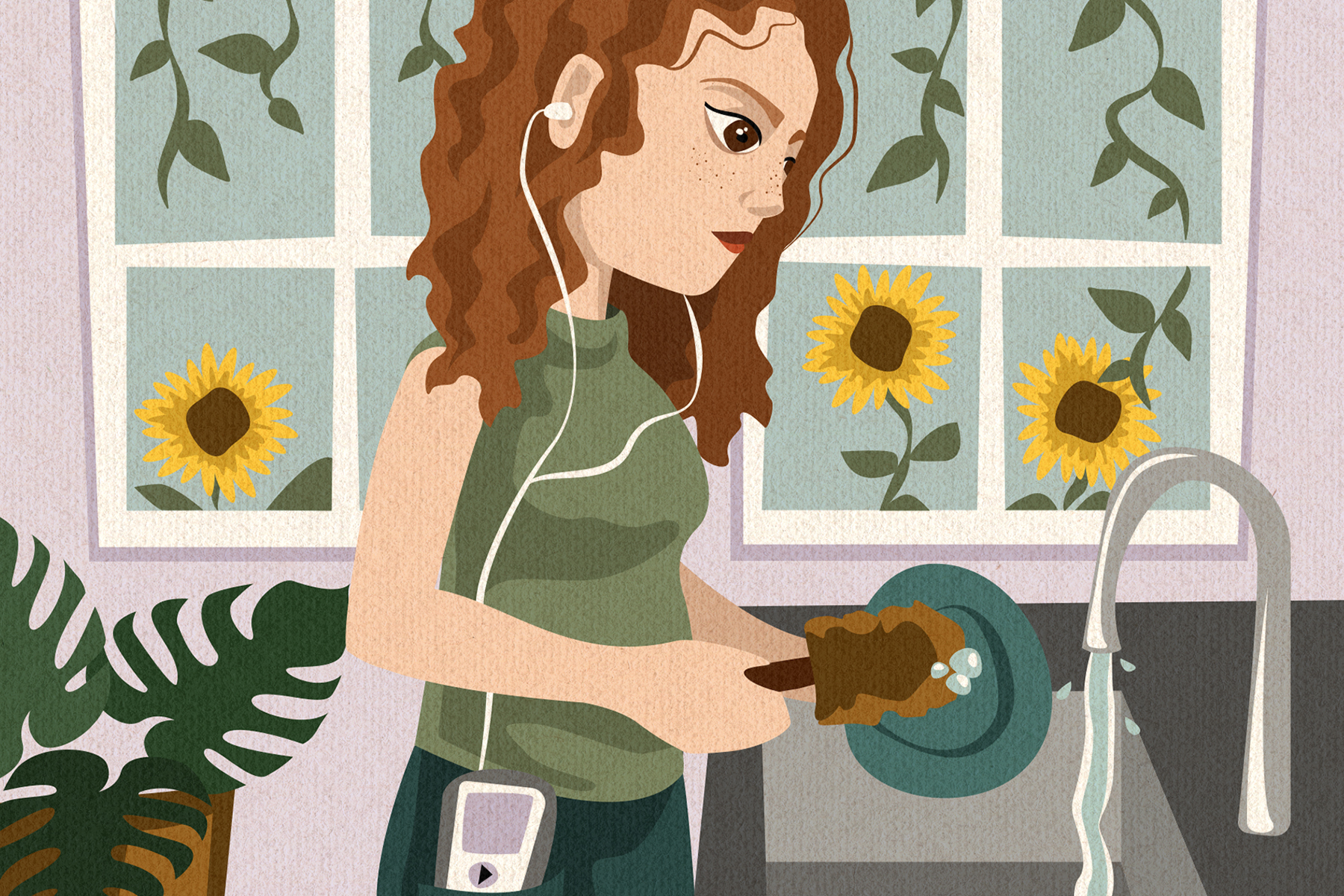Years ago, I found podcasts to be little more than a waste of time. The idea that someone would voluntarily pick up their phone only to listen to someone drone on for upwards of an hour with little payoff seemed entirely unappealing. However, I am happy to say that I have since discovered that this is far from an accurate perspective on podcasts.
Three years ago, I tried podcasts when I found that music sometimes failed to reach the part of my brain that I hoped it would. The first podcast I listened to was “The Daily.” I started tuning in during my morning routine and have done so nearly every morning for the past three years. Beyond the sense of familiarity that podcast has offered me, I have found that, as someone who grapples with extreme anxiety and struggles with organization, podcasts have helped me pull together routines that make me feel productive on two fronts: learning something new and getting something done.
Over the past couple of years, having a podcast to listen to during my morning routine is something that has helped me get excited about getting out of bed on days when it’s hard to do so. The idea of learning something new before I’ve had the chance to start my day strikes me as thrilling and makes me feel as if I’ve already checked one goal off of my to-do list. To get myself through mornings, I normally lean toward podcasts that inform listeners of current events — my favorites being “The Daily” by The New York Times and “Consider This” by NPR.
Taken together, the daily episodes from these podcasts are normally long enough that I can begin listening to them when I brush my teeth and can finish them up when I’m heading out for the day; combining episodes ensures that I don’t lose momentum after an episode ends because I know that another is about to start. I also enjoy podcasts in the morning because they allow me to go through the motions of getting ready for the day without allowing me the chance to stress myself out before the day really begins.
Aside from listening to podcasts in the morning, choosing different podcasts for doing chores around the house has helped me tremendously with keeping a cleaner space. On harder days, finding the motivation to clean up the area around me is a challenge; yet, turning on a podcast and telling myself to fill the duration of an episode with cleaning (or at least straightening up) makes it far less intimidating and keeps me from feeling overwhelmed. By doing this, I give myself a set time to achieve a goal and am able to leave it be after it is completed.
Unsurprisingly there are about as many podcasts as there are apps — and anyone is bound to find one that interests them. For example, there is an abundance of podcasts tailored to people with anxiety.
These tend to run the gamut. Some are led by psychologists while others suggest other methods of calming down, such as meditation. Podcasts like “The Calmer You” and “The Anxiety Guy” arm their listeners with tools to handle their anxiety. Still, while productive, these podcasts can be something of a double-edged sword. On one hand, they allow the listener to use helpful strategies without having to talk through their own experiences. For many people, this is far less intimidating than therapy; still, these podcasts are no replacement for actually talking to a professional.
Other podcasts are meant for education. There is a remarkable number that seek to help listeners on their journey to learn another language. While the concept of these podcasts is interesting, research shows that they may not be productive. In 2014, a study done by the International Journal of Language Academy found that podcasts did not result in a dramatic difference in students’ ability to become more proficient in a language. According to the study, this is likely due to the fact that these podcasts are not long enough to facilitate any real difference in language learning, combined with the fact that these podcasts mostly exist at an elementary level.
There is also research to support the idea that podcasts are used by many people as a tool to fill time, make mundane tasks more interesting, or simply unwind. A study performed by researchers at Simon Fraser University found that there are five common circumstances in which people listen to podcasts alone. These include relaxing, exercising, passing time, carrying out different hobbies, or indulging in a form of “escapism” aka making boring tasks more interesting. Outside of when and where podcasts are listened to, the study found that the likability of the host played a crucial part in whether or not people enjoyed a podcast and listened to it regularly. More often than not, people felt a strong sense of trust and friendship with the host if they genuinely enjoyed their personality and voice — something key if you plan to make podcasts a part of your daily routine.

















